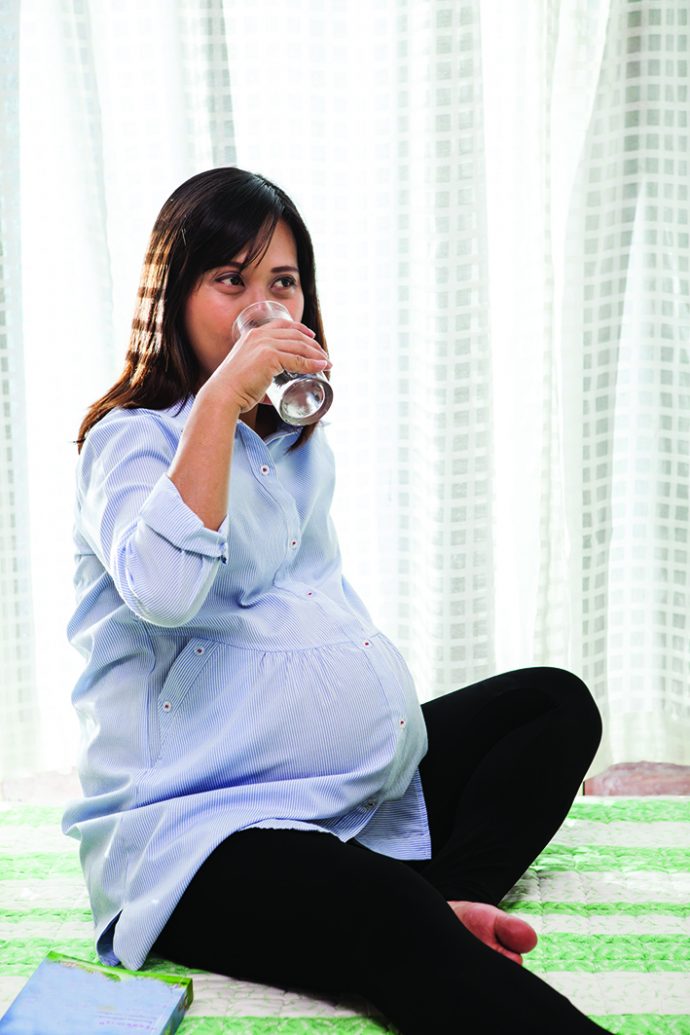Pregnancy is an exciting chapter in a mother’s life. However, many moms-to-be are unaware of the physical changes that come with pregnancy. It is also essential for new moms to understand the right steps to take when pregnancy calls, to ensure the healthy development of their child.
First of all, before embarking on pregnancy, you must see your doctor. Make sure that you are well and ready for the pregnancy. If you have a medical problem, it needs to be treated or stabilised before pregnancy. It is best to be referred to a pre-pregnancy clinic for advice before beginning the journey of pregnancy.
Signs of pregnancy
Once you’re pregnant, you may notice some changes to your body. Recognising and preparing for these changes can be beneficial in ensuring a smooth pregnancy period. Here are some of the common physical changes you may experience during pregnancy:
- No period
- Faster heart rate
- Heartburn
- Nausea (with or without vomiting)
- Increased body weight
- Increased appetite and thirst
- Breast enlargement and tenderness
- Frequent urination
To-do list
Taking the right steps to ensure the healthy foetal development of your child is equally important as preparing for the physical changes of pregnancy. This “to-do list” can help guide you.
- Go for antenatal check-ups. These are regular pregnancy check-ups, where routine health tests and examinations of the mother and foetus will take place. It is recommended that pregnant mothers book their first antenatal check-up within 12 weeks of pregnancy confirmation and have a total of eight visits.
- Enhance your nutrition. To support healthy foetal development, it is recommended to regularly take supplements of folic acid prior to pregnancy to at least the 12th week of gestation. An increased intake of foods containing nutrients like vitamin C, vitamin D, iron, and calcium, is also recommended.
- Keep fit. Staying active can help pregnant mothers prepare for labour. Although strenuous exercise is not advisable, light workouts like pelvic floor exercises can help strengthen the muscles involved in childbirth. It is recommended that pregnant mothers regularly partake in light exercises for 15-30 minutes, three times a week.
- Stay hydrated. Pregnant mothers should stay hydrated to support foetal development.
- Stop smoking. Smoking during pregnancy can cause ill effects to the foetus. Getting help to stop smoking can help to ensure the healthy development of the baby.
- Be financially prepared. Parenthood is a huge financial commitment. Discuss with your partner to make sure that both of you are ready.
- Register for antenatal classes. Antenatal classes can help address the many concerns and issues mothers have about taking care of their baby and also help prepare mothers for childbirth and labour.
- Start planning for birth. It is recommended to plan out your personal preferences prior to labour and after birth (e.g. preferred name, labour positions, concerns about pain relief, and privacy). This can help your midwife make childbirth as comfortable as possible.
- Look into confinement needs. If you do not have support at home, you may need to look for a confinement lady or home. Plan in advance.
Get vaccinated. Getting vaccinated during pregnancy can provide protection to the child against various diseases before they are even born. Some examples of important vaccinations include the Tdap, and influenza vaccines. The 3-in-1 Tdap vaccine can provide protection to newborns against tetanus, diphtheria, and pertussis. Similarly, the influenza vaccine is important as it can help prevent influenza infections (the flu) and provide considerable protection to newborns for months after birth.
Importance of vaccination in pregnancy
- Helps prevent infection in mothers and babies. Newborns are one of the high-risk groups susceptible to contracting infections of diseases like influenza, tetanus, diphtheria, and pertussis as they are too young to be vaccinated. Getting vaccinated during pregnancy can help provide protection to both the mother and the baby against certain diseases.
- Helps prevent severe symptoms in babies. Children and newborns are at risk of developing severe infections and life-threatening symptoms. Maternal vaccinations can help to reduce the risk of their baby developing severe life-long complications and symptoms.
In conclusion, pregnancy is an exciting and crucial phase in a woman’s life. Taking the right steps at all stages of pregnancy can help ensure a smooth, stress-free, and comfortable experience.







Comments